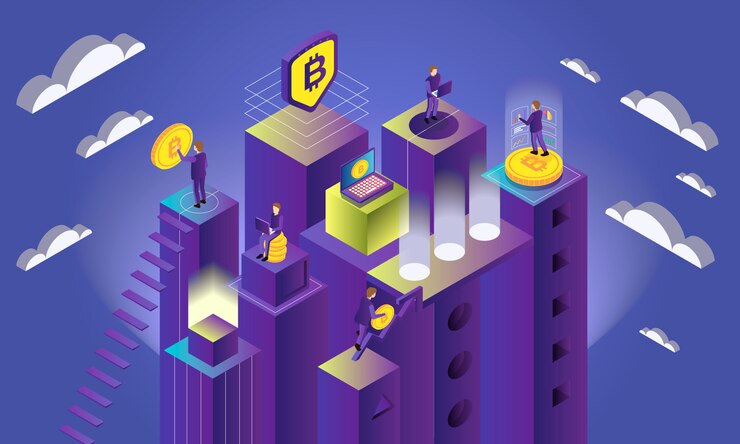In this growing world of technology where everything is digitized, a big concern is emerging: privacy. Privacy is a form of data that has confidential sources of an organization. Due to their classified nature, it is kept from others to maintain and run a business. There are three forms of privacy.
Physical Privacy
Physical privacy is connecting with a person and their inaccessibility to their appearance to others. For instance, celebrities, government officials, and prisoners all keep it. A person with physical privacy must live behind the wall unless asked to appear.
Virtual Privacy
Social media plays a big role in our lives, among other things, besides physical privacy. It was found that social media accounts have more data on individuals than others. Even visits, meetings, and upcoming plans are available on the internet over social media platforms. Several kinds of virtual private networks prevent the displacement of a virtual network.
Legislation Privacy
Legislation and privacy fall under the government’s law section. It consists of some government projects and military activities that must be kept secret from others for security reasons. It includes personnel data, information about government personnel, and some classified acquaintances.
As technology is in demand, the security of these privileges is also needed. Blockchain technology reduces the risk of leaking personal data and protects it strictly.
Blockchain stores data in a pyramidal chain model, which becomes easier to access but harder to hack or breach. The algorithm used in the blockchain makes it quite hard to hack, cheat, and change stored data in its database.
So, let’s learn how blockchain is effective and used for security and authentication:
Can You Use Blockchain for Authentication?
Blockchain is a modern technology built for proper user verification and the complete authenticity of the accessors. So, in direct answer, we can use blockchain for authentication. The algorithm and AI of blockchain connect to resources provided by the company and go to their origin platform to verify the data.
Let’s learn about those services that can be use for authentication using blockchain:
Passwordless authentication
Blockchain doesn’t offer passwords to save their data as they are easier to access by malware and attacks. It is a safe platform and trusted source for keeping classified data with unique encrypted codes. To log in to a user, the Blockchain allows a one-time password method and biometrics like fingerprint and retina scans. Then, the blockchain saves the user’s retrieved data through hashing inside layered databases. These layers are protect by strong walls of technology that are impossible to scan and go through.
Financial Transactions
Blockchain allows its technology to be applied to all types of financial platforms. That’s why crypto allows safe transactions after verifying the sender and recipient completely. Because of the blockchain, financial transactions and their security have improved vigorously. It is programmed to perform its task on each type of network. That’s why almost every bank uses blockchain technology to authenticate and conduct safer transactions.
Personal Identity
The big impact can be seen in identifying a user’s identity using this technology. Blockchain allows users to decentralize their identities over the ledger, providing complete control over managing and occasionally controlling user identities. Blockchain identity management gives unchangeable information to confidential services like evidence and forensics. Because of the decentralize nature of blockchain, it is hard to temper data once it is saved.
Cybersecurity
Technology can be found in every corner of the world. That’s why crime has also taken the hands of technology to get complete. To overcome this, the Cybersecurity Act is in place. It protects computer systems and area networks with the help of blockchain. In the blockchain cybersecurity sector, blockchain can provide advanced controls on securities by using public key infrastructure to authenticate identities and activities that help detect crime easily.
How to Detect Fake Products Using Blockchain
The ongoing digital world. Everything is in a simple digital format and was created intentionally to make human life easier. But technology is taking place everywhere, and frauds are also rising.
Shopping online is easier and, no doubt, more comfortable. But there has always been a difference between online shopping and inspecting a product ourselves.
So, how does blockchain help us detect fake products and verify them:
Spotting Fake Products Using Blockchain
For the past few years, fake products have been causing harm to manufacturing and construction companies. It is harming the profit, name, and value of the market. However, the unique innovation in the field of blockchain helps necessary companies with their authentication models. The general and vast issue that is rising is the currency exchange. Blockchain influences the provider and verifies their data, rate of change of currencies, and margins, comparing them with the present market rate without any difficult, time-consuming calculations.
They authenticate fake products due to their decentralized, distributed, and digital ledger, which can store transaction and product-related information in blocks inside their database, forming an unbreakable chain.
The blockchain allows its users to verify with a QR code registered by the true provider of the product. Scanning the code identifies the fake product. Users can upload their product’s QR code to the blockchain databases. The product is consider real if the relative date matches the customer’s code. Rejecting given data on the blockchain is regard as a fake product.
How does blockchain verify authenticity?
The entire blockchain is based on algorithms and programming for automation and verification that prevent fraud and improve data security. Blockchain’s data integrity behaviour helps us verify authenticity. Blockchain’s smart labels and saved records help verify the quality and authenticity of a person or product, allowing marketers and shoppers to choose their relevant items with assured quality.
Check out these examples in which blockchain is doing a great job:
Food Industries
Blockchain helps nutritionists and doctors by tracing the food quality of their samples. It performs its authentication process to provide quality nutrition, which helps increase the productivity of medicines, proteins, and minerals.
For example, blockchain connects with some research and collaborates with several food organizations to ensure food quality.
Video Games
Yes, blockchain secures the gaming platforms, ensuring endless fun and entertainment. It uses NFTs to review the collector’s purchases and push the result forward. NFTs, or non-fungible tokens, are computer file storage in the blockchain database. Just because of this case and due to digital works of art, the purchasers become assured of the quality of games and get to know about their uniqueness and unchangeability.
Architecture
Blockchain algorithms run through some creations and architects to verify the property and secure investment. In the event of a dispute, blockchain authenticates the antecedents of various properties and reflects the best according to the matching choices.
Certifications
Blockchain authenticates whether a degree, diploma, or certificate the user provides is real or forged to prevent fraud and forgery. It also helps students choose a university and prevents them from being conned. Blockchain collaborates with educational societies and matches the given data with their databases. It maintains transparency so that students can view their records online. It is the best step toward diploma and certificate fraud.
Conclusion
Blockchain technology is an easy-to-implement, secure authentication, verification, and improved security solution. It provides unprecedented data protection and ensures that all activities are completed in a decentralized environment without relying on one central point of authority. Additionally, its ability to validate the integrity of all data stored on the network makes it a highly stable and reliable platform for storing sensitive information. As such, blockchain-based authentication and verification processes can become a reliable tool for organizations looking to ensure safe access to their systems.



